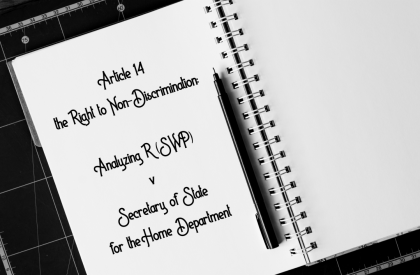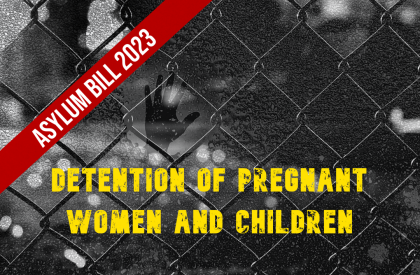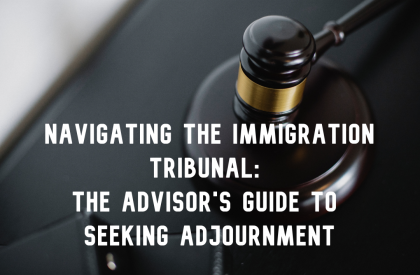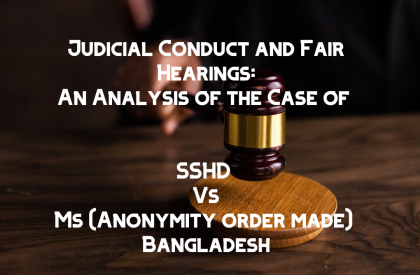Discretionary Leave to Remain: An Overview
Discretionary Leave to Remain (DLR) is a form of leave granted to individuals in the UK who do not meet the requirements for other types of immigration status. It is often issued based on humanitarian grounds or where there are exceptional circumstances that warrant a stay in the country. Unlike more straightforward immigration routes, such as Spouse Visas or Work Visas, discretionary leave is granted on a case-by-case basis. Applicants must demonstrate that their personal circumstances make them eligible for such leave.
Here’s a breakdown of several key routes under Discretionary Leave to Remain, particularly for individuals seeking to remain in the UK due to family ties or long residence.

Partner of a British Citizen – 10-Year Route
One of the most common forms of Discretionary Leave to Remain is available to those who are the partner (spouse, civil partner, or unmarried partner) of a British citizen but do not meet the standard requirements for family visas under the Immigration Rules.
This route typically applies to individuals who are in a genuine and subsisting relationship with a British citizen but face exceptional circumstances that prevent them from qualifying for the usual Spouse Visa or Partner Visa. For example, applicants may have overstayed a previous visa or faced other challenges in their immigration journey.
Under the 10-year route for discretionary leave, applicants may be granted leave to remain for a period of 30 months, with the option of renewing it. After completing 10 years of lawful residence under this route, they can apply for Indefinite Leave to Remain (ILR).
The key factors in the decision will be the genuine nature of the relationship, the length of time the applicant has lived in the UK, and whether their circumstances justify the grant of leave on discretionary grounds.
Q: What is the 10-year route for partners of British citizens?
A: The 10-year route allows a partner (spouse, civil partner, or unmarried partner) of a British citizen to apply for Discretionary Leave to Remain in the UK if they do not meet the requirements for a standard spouse or partner visa. The applicant is granted leave for 30 months, with the option of renewing it. After 10 years of lawful residence, the applicant may apply for Indefinite Leave to Remain (ILR).
Q: Can I apply for a partner visa if I’m married to a British citizen?
A: Yes, as a spouse of a British citizen, you may be eligible for the 10-year route if your relationship is genuine, but you are unable to meet the strict requirements of a standard spouse visa. This is often used in cases of overstays or other exceptional circumstances.
Q: What documents do I need to apply for Discretionary Leave as a partner?
A: You will need to provide evidence of your relationship with your British partner, proof of continuous residence in the UK, and any other documents supporting the exceptional nature of your case.
Parent of a British Child – 10-Year Route
to protect children who would face considerable hardship if their status in the UK were to be revoked.
Q: What does the 7-year route for children mean?
A: A child who has lived in the UK for at least 7 years may be eligible for Discretionary Leave to Remain based on the fact that their removal would cause undue hardship, particularly if they have strong ties to the UK, such as schooling, community involvement, or family connections.
Q: Can a child apply for Discretionary Leave to Remain on their own?
A: While a child may apply on their own, the application is typically made by a parent or legal guardian. The child’s best interests will be at the forefront of the decision-making process, and the Home Office will assess the hardship they would face if removed from the UK.
Q: How does the Home Office assess the impact of removal on a child?
A: The Home Office will look at factors such as the child’s emotional, psychological, and educational development, as well as the availability of suitable accommodation and support if the child were to be removed from the UK.
Child Who Has Lived in the UK for 7 Years
A route for children who have lived in the UK for 7 years is also available under the Discretionary Leave to Remainframework. The Home Office considers that children who have resided in the UK for a significant period may be able to build strong ties to the country, and their removal would cause undue hardship.
For children under 18 who have been continuously residing in the UK for at least 7 years, they may be eligible for leave to remain based on their best interests and the impact on their life if they were required to leave the UK.
Key factors in the decision include:
- The child’s ties to the UK (e.g., schooling, family life, community involvement)
- The child’s ability to adapt to life outside the UK
- Any hardship or emotional distress the child may face if removed from the UK
In such cases, the Home Office will weigh the best interests of the child, in line with the UN Convention on the Rights of the Child, before making a decision. This route is typically designed to protect children who would face considerable hardship if their status in the UK were to be revoked.
Q: What does the 7-year route for children mean?
A: A child who has lived in the UK for at least 7 years may be eligible for Discretionary Leave to Remain based on the fact that their removal would cause undue hardship, particularly if they have strong ties to the UK, such as schooling, community involvement, or family connections.
Q: Can a child apply for Discretionary Leave to Remain on their own?
A: While a child may apply on their own, the application is typically made by a parent or legal guardian. The child’s best interests will be at the forefront of the decision-making process, and the Home Office will assess the hardship they would face if removed from the UK.
Q: How does the Home Office assess the impact of removal on a child?
A: The Home Office will look at factors such as the child’s emotional, psychological, and educational development, as well as the availability of suitable accommodation and support if the child were to be removed from the UK.
20 Years of Continuous Residence in the UK
For individuals who have lived in the UK for 20 years, there is a discretionary route to remain. This form of leave is granted to individuals who have spent a significant portion of their life in the UK and can demonstrate that their removal would cause exceptional hardship.
Applicants under this category do not have to have lawful status during their time in the UK. However, they must demonstrate that their continued presence in the UK is in the best interests of the country and that their life in the UK has formed strong connections.
Considerations in the application process may include:
- The length of time the individual has lived in the UK.
- Their community ties, employment history, and involvement in society.
- The effect of deportation or removal on the individual’s life and any family members residing in the UK.
This route is particularly helpful for those who may have arrived in the UK as children or young adults and have built a life in the UK, making deportation or removal disproportionately harsh.
Q: What is the 20-year residence route for Discretionary Leave to Remain?
A: This route is for individuals who have lived in the UK for 20 years, regardless of their immigration status. The Home Office may grant Discretionary Leave to Remain if the applicant can show that their removal would cause exceptional hardship due to their long residence in the UK.
Q: Can I apply for ILR after 20 years of residence?
A: After 20 years of continuous residence in the UK, you may be eligible to apply for Indefinite Leave to Remain (ILR). However, you will need to demonstrate strong ties to the UK, such as family, community involvement, and the hardship you would face if removed.
Q: What documentation is required to support a 20-year residence application?
A: You will need to provide proof of your continuous residence in the UK for 20 years, such as tenancy agreements, employment records, or school enrollment. The Home Office will also consider the hardship you would face if removed from the UK.
Conclusion: Discretionary Leave to Remain
Discretionary Leave to Remain is a vital option for individuals who do not qualify under the more traditional immigration routes. Whether you are a partner of a British citizen, a parent of a British child, or a child who has been in the UK for a significant period, the DLR route provides the opportunity to remain in the UK based on your individual circumstances.
At Lawfinity Solicitors, we understand the intricacies of applying for Discretionary Leave to Remain and can guide you through the process. Our experienced immigration lawyers provide expert legal advice to ensure your application has the best chance of success.
If you are looking for help with a Discretionary Leave to Remain application, contact us today for a consultation.
News Feeds.
Decision Are A Professional Attorney & Lawyers Services Provider Institutions. Suitable For Law Firm, Injury Law, Traffic Ticket Attorney, Legacy And More.
- January 6, 2025
Brexit’s Impact on Modern Slavery in the UK’s Hospitality Industry: An Alarming Trend
- January 6, 2025
Article 14 and the Right to Non-Discrimination: Analyzing R (SWP) v Secretary of State for the Home Department
- January 6, 2025
Detention of Pregnant Women and Children: Concerns Raised Over Proposed UK Asylum Legislation
- January 6, 2025
Navigating the Immigration Tribunal: The Advisor’s Guide to Seeking Adjournment
- January 6, 2025
The Intersection of Mental Health and Immigration Bail: Applying for Immigration Bail on Grounds of Mental Health
- January 6, 2025







